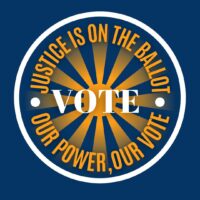On April 14, the Justice & Safety Alliance (JSA) shared a presentation with journalists
outlining a newly formed Juvenile Crime Abatement Team within the Memphis Police
Department (MLK50 Article). The JSA firmly opposes the plan outlined in this presentation, which is
now “on pause” after articles on the team’s existence were published. Our coalition of
community-based advocates demands further commitment from MPD that it will stop
the use of racial profiling and targeted task forces — for juveniles and adults.
Created by department leadership, this new specialized unit will end up racially
profiling, surveilling, and criminalizing young people based on racist generalizations
and failed stop-and-frisk policies. It is an intentional policing policy change focused on
Downtown Memphis and represents an egregious, racist conception of public safety that
would violate the civil rights of young people and undermine trust between the
community and law enforcement.
The timing of this announcement is particularly alarming, coming just months after a
SCORPION task force killed Tyre Nichols and just days after the City Council finished
passing a slate of community-supported police reforms. Despite clear and consistent
community calls to end pretextual stops, eliminate the use of plain clothes officers, and
disband specialized units, this Juvenile Crime Abatement Team:
● Creates a new specialized unit to target children,
● Allows for pretextual pedestrian stops that criminalize normal teen behavior, and
● Employs plain clothes officers to carry out these stops.
If they choose to implement this plan despite all of the community pushback, MPD will
further erode trust between law enforcement and the people they are supposed to
protect and serve.
We cannot allow policies and practices like these to persist in our city. Young people in
Memphis deserve better. They deserve a city that invests in their education and safety,
not one that puts them on a path to prison and family separation. We must work
together to build a city where young people, regardless of their race or income, can
thrive and reach their full potential. We remain committed to working towards justice
and safety for all in Memphis.





